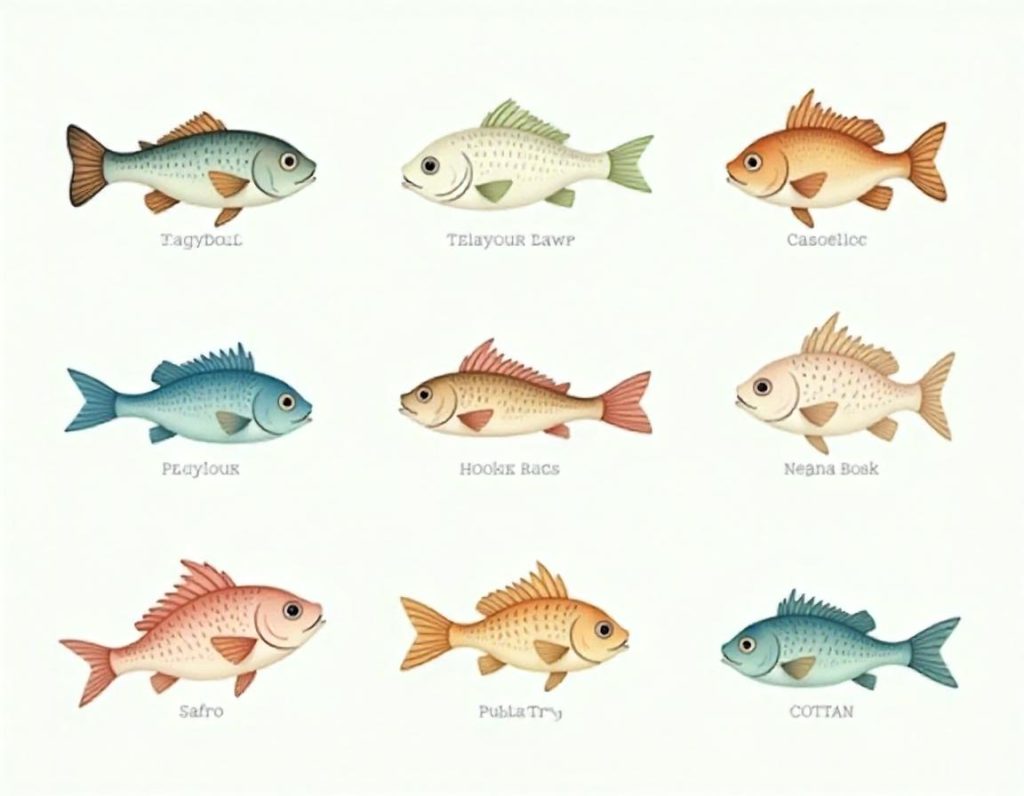Why Gifting Pets Can Be Problematic: Understanding the Challenges
Gifting pets, while often done with good intentions, can lead to unintended consequences for both the recipient and the animal. Many people view pets as delightful surprises—after all, who wouldn’t love receiving an adorable puppy or kitten? However, pets are not like typical gifts; they come with lifelong responsibilities, emotional commitments, and financial obligations that many recipients may not be prepared for. This mismatch between expectation and reality is why certain pets make particularly poor choices as gifts.
The concept of “Top 10 Worst Pets to Give As a Gift” highlights animals whose needs, temperaments, or care requirements make them especially unsuitable for impulsive gifting. For instance, exotic animals like snakes or hedgehogs might seem fascinating, but their specialized habitats and dietary needs can overwhelm even experienced pet owners. Similarly, high-maintenance breeds like Huskies or Dalmatians require significant time, energy, and resources, which can catch new owners off guard.
Moreover, pets are sentient beings with unique personalities and preferences. They deserve homes where they are chosen thoughtfully, rather than being handed over as spontaneous presents. When pets are given without proper consideration, it often leads to neglect, abandonment, or rehoming—a heartbreaking outcome for both the animal and the giver. By understanding these challenges, we can approach pet ownership more responsibly and ensure that every animal finds a loving, permanent home.
The Top 10 Worst Pets to Give As a Gift
When it comes to gifting pets, some animals stand out as particularly ill-suited for this role due to their demanding care requirements, unique temperaments, or ethical concerns. Below is a list of the top 10 worst pets to give as a gift, along with explanations of why they’re better left off any holiday or birthday wishlist.
1. Exotic Reptiles (e.g., Snakes, Iguanas)
Reptiles like snakes and iguanas might captivate attention with their unusual appearances, but they are far from low-maintenance companions. These animals require precise environmental conditions, including temperature-controlled habitats, UV lighting, and specific diets. Additionally, many reptiles live for decades, meaning the recipient must commit to long-term care. Without prior experience or interest, owning one can quickly become overwhelming.
2. Sugar Gliders
These small marsupials have gained popularity for their cute looks and gliding abilities, but they are highly social creatures that demand constant interaction. Sugar gliders thrive in pairs or groups, requiring ample attention and enrichment. Neglecting their social needs can lead to stress, depression, and behavioral issues. Giving a sugar glider as a gift risks placing undue pressure on someone unprepared for such responsibility.
3. Hedgehogs
Hedgehogs are undeniably adorable, but their nocturnal nature and prickly demeanor make them less-than-ideal pets for beginners. They require a quiet environment during the day and plenty of exercise at night, along with a strict diet and regular handling to prevent fear-based aggression. Many recipients may find themselves unprepared for the quirks of hedgehog ownership.
4. Ferrets
While playful and intelligent, ferrets are escape artists that need secure enclosures and constant supervision. Their mischievous behavior can result in chewed furniture, stolen socks, and other household chaos. Ferret-proofing a home is essential, yet few people anticipate these challenges when receiving one as a gift.
5. Rabbits
Often perceived as low-maintenance alternatives to cats or dogs, rabbits actually require extensive care. They need spacious living areas, daily exercise, a fiber-rich diet, and regular veterinary checkups. Moreover, rabbits are prey animals that can become easily stressed if mishandled. Gifting a rabbit without ensuring the recipient understands its needs can lead to unintentional neglect.
6. Hermit Crabs
Though marketed as easy starter pets, hermit crabs have complex needs that are often underestimated. They require humid environments, varied diets, and opportunities to molt safely. Improper care can shorten their lifespan significantly, making them a poor choice for inexperienced owners.
7. Chinchillas
Chinchillas are soft, fluffy rodents with charming personalities, but they also have delicate health and hygiene requirements. They need dust baths instead of water, cannot tolerate heat, and require large cages for jumping and climbing. Their longevity (up to 15 years) means committing to years of specialized care—an unexpected burden for most gift recipients.
8. Birds (e.g., Parrots, Cockatiels)
Birds like parrots and cockatiels are intelligent, social animals that bond deeply with their caregivers. However, they require mental stimulation, social interaction, and proper nutrition to thrive. Many birds develop behavioral problems or self-harm tendencies when neglected. Gifting a bird without considering the recipient’s lifestyle and commitment level can spell disaster.
9. High-Energy Dog Breeds (e.g., Huskies, Border Collies)
Dogs like Siberian Huskies and Border Collies are beloved for their striking looks and boundless energy—but this energy demands hours of exercise and training each day. Without sufficient outlets for physical and mental activity, these breeds can become destructive or anxious. Surprising someone with a high-energy dog is rarely a good idea unless you know they’re fully equipped to handle the challenge.
10. Goldfish
Goldfish are frequently seen as simple, disposable pets, but they actually require large tanks, filtration systems, and careful maintenance. Contrary to popular belief, goldfish can grow quite large and live for over a decade under optimal conditions. Giving a goldfish as a gift perpetuates misconceptions about their care and sets the stage for potential neglect.
Each of these animals has unique qualities that make them wonderful companions in the right circumstances. However, gifting them without thorough consideration can lead to heartache for both the recipient and the pet. Responsible pet ownership starts with thoughtful decision-making, not impulsive gestures.
Practical Tips for Choosing the Right Pet Responsibly
If you’re considering introducing someone to pet ownership—or even becoming a pet parent yourself—it’s crucial to approach the process thoughtfully. Here are some actionable tips to help ensure you choose the right pet responsibly:
Assess Lifestyle Compatibility
Before selecting a pet, evaluate the recipient’s (or your own) daily routine, living space, and availability. For example, busy professionals may struggle to meet the demands of high-energy dogs like Huskies, whereas seniors might prefer calm, low-maintenance companions like adult cats. Matching a pet’s needs with the owner’s lifestyle reduces the risk of mismatched expectations.
Research Care Requirements
Every species and breed comes with specific care guidelines. Take the time to research dietary needs, grooming routines, exercise requirements, and potential health concerns. Websites, books, and consultations with veterinarians or breeders can provide valuable insights into what owning a particular pet entails.
Avoid Impulse Decisions
Pets should never be purchased or adopted on a whim. Instead, encourage prospective owners to spend time interacting with different types of animals before making a decision. Foster programs, shelters, and pet expos offer excellent opportunities to explore options without rushing into a lifelong commitment.
Consider Adoption Over Purchase
Adopting from shelters or rescue organizations not only saves lives but also provides access to animals whose personalities and histories are already known. Many shelters conduct temperament assessments and offer guidance on finding the perfect match for adopters’ lifestyles.
Set Realistic Expectations
Educate yourself and others about the realities of pet ownership, including costs, time commitments, and emotional responsibilities. Owning a pet is rewarding, but it’s also a serious undertaking that requires patience and dedication.
By following these principles, you can help ensure that every pet finds a loving, well-prepared home—and avoid the pitfalls associated with gifting animals impulsively.
Answering Your Questions About Gifting Pets
To further clarify common concerns and misconceptions surrounding pet gifting, here are answers to some frequently asked questions:
Q: Is it ever okay to give a pet as a gift?
A: While gifting pets isn’t inherently wrong, it’s best reserved for situations where the recipient has explicitly expressed interest and demonstrated readiness for pet ownership. Even then, involving them in the selection process ensures a better fit.
Q: What makes exotic pets like reptiles bad gifts?
A: Exotic pets often require specialized care, equipment, and knowledge that many people lack. Without prior experience, recipients may struggle to meet their needs, leading to stress for both the animal and the owner.
Q: Why are high-energy dog breeds challenging gifts?
A: Breeds like Huskies and Border Collies need extensive exercise and mental stimulation. Without adequate outlets for their energy, they can become destructive or develop behavioral issues, creating frustration for unprepared owners.
Q: Are small pets like hamsters or guinea pigs good alternatives?
A: Small pets can still be poor gifts if the recipient isn’t interested in caring for them. While they’re generally easier to manage than larger animals, they still require proper housing, diet, and attention.
Q: How can I surprise someone with a pet responsibly?
A: Instead of presenting the actual animal as a gift, consider giving pet-related items like toys, food, or adoption certificates. Allow the recipient to visit a shelter or breeder and choose their own companion when they’re ready.
These insights aim to foster responsible pet ownership and prevent the heartbreak that can arise from poorly planned pet gifting.





